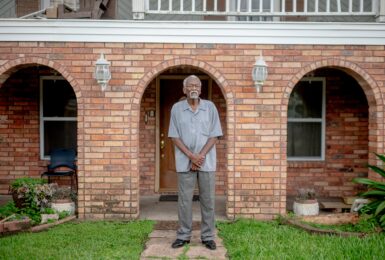
Politics
the curious case of bernie sanders and black voters
Last week, Bernie Sanders went viral for all the wrong reasons when answering a question from a Black student at a criminal justice reform forum which took place at Benedict College, an HBCU located in South Carolina, on October 26th. The student asked Bernie Sanders how he would advise him if he were his son and stopped by the police. Bernie stated, “I would do my best to identify who that police officer is — in a polite way, ask him or her for their name. I would respect what they are doing so that you don’t get shot in the back of the head.” Responses from other front runners posed with that question weren’t much better, but, for various reasons, Bernie’s answer triggered many.
Although some took issue with the question even being posed to white folks, who rarely get anything right that is remotely related to race and criminal justice, most took issue with Bernie’s response in which “respectability” was used as an approach. Many cited the cases like Philando Castile, Eric Garner, and countless others where police have killed Black folks despite “respectfulness” and obedience to the law. At this point, I think many feel that Bernie should have a better grasp on race because of his relationship with the Black community that spans over 60 years.
Bernie Sanders is, of course, no stranger to politics. The self-proclaimed Independent has served in Congress for more than 30 years, and is a part of what many call the socialist movement in Democratic politics, a mentor of sorts to members of “The Squad”. Interestingly enough, Bernie Sanders, a 78-year-old white man from Vermont, also has a very strong following from younger Black and Brown folks who feel that, with his “progressive” stance on many issues, he is the perfect candidate to tackle many of the issues we face in America.
By now we all know that Bernie Sanders “marched with Dr. King”, something that has now become a “yeah, yeah, we know” moment when his politics for Black community are discussed. Bernie’s meteoric rise during the 2016 Democratic primary against Hillary Clinton placed him in a position of power as one of the frontrunners in 2020. During that campaign, his base became enthusiastic young Black and Brown voters looking for a change — one that many thought Barack Obama would deliver.
This has carried Sanders a long way as a “progressive” and allowed him to grow support from young Black and Brown folks who in 2020 see him as the answer to what we’ve dealt with in the past. Three of the four members of “The Squad” have endorsed him in next year’s primaries, with Ayanna Pressley still remaining silent about her choice. But Bernie’s record with the Black community is not one that is completely unscathed.
Joe Biden rightfully takes a lot of the blame for the 1994 crime bill he helped write, a policy that accelerated policing in the country and emboldened a system of mass incarceration. Bernie Sanders has also had to answer to critics. In 1994, on the floor of the House of Representatives, Bernie raised concerns about the bill and mass incarceration. He said, “We are dooming today tens of millions of young people to a future of bitterness, misery, hopelessness, drugs, crime and violence.” Yet, ultimately, Bernie still signed the bill. Sanders has stated that he now regrets it, while explaining his thought process in 1994 was that he liked the provisions it provided against assault weapons and violence against women.
In 2015 Bernie had multiple clashes with Black Lives Matter protesters at his rallies, often for struggling to discuss racial intersections and inequality without a typical, economics-centered white progressive lens. When BLM protesters showed up to his event, they were not treated kindly by Bernie supporters — which is ironic, seeing that Bernie marched with King in a state of protest.
For many, the issues surrounding Bernie Sanders have become two-fold. One is that, after all of Sanders’ work around civil rights, people have an expectation for him to get it right on criminal justice and racism in a way that is actually progressive. Think: prison abolition. The second issue are Bernie supporters, and the often-aggressive ways in which they interact with anyone who questions Bernie’s stances or methods, especially white progressives who take issues with Black progressives.
Historically, leadership in America has been packaged as older, white and male. The nation is conditioned in that way. It is ingrained in Black folks who have been voting for Democrats that a white savior will be one of the components of freedom or liberation — think about the anger when Ana DuVernay’s Selma didn’t make Lyndon B Johnson the savior to MLK, and the backlash that followed. And, if we are being honest, most progressives are a lot more moderate than they think.
Many who identify as progressive want prison reform but not abolishment. They don’t see an existence without systems even if these systems oppress them and can’t be fixed. For those who are supporting candidates like Sanders, it’s an acceptable progressiveness and an antidote to those primarily older Black voters who will support Joe Biden, another old white man. Either way, only time will tell how this primary will end. But whoever wins the nomination, swaying Black folks that are die-hard Bernie, Warren, or Biden will be a tough hill to climb.
Get The Latest
Signup for the AFROPUNK newsletter




